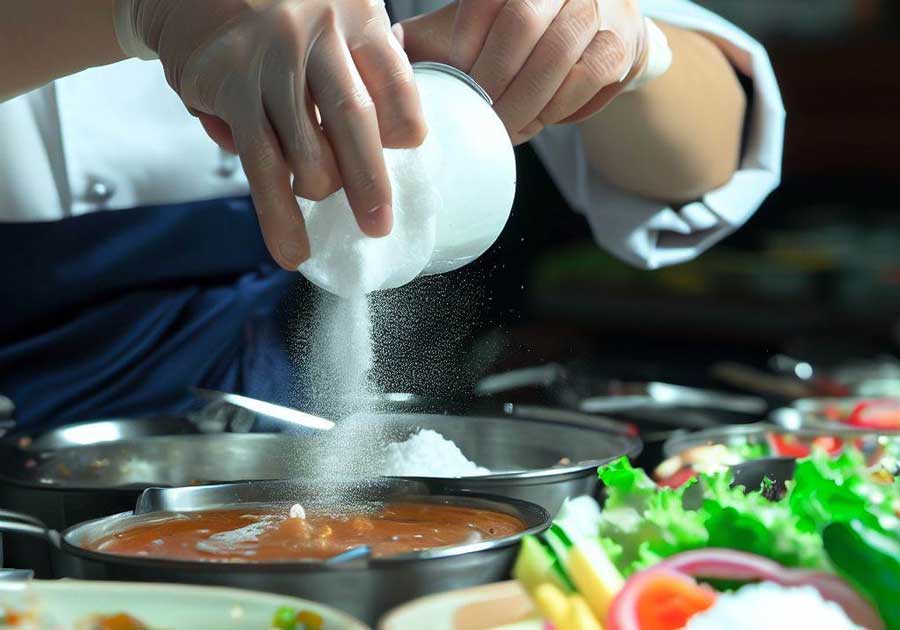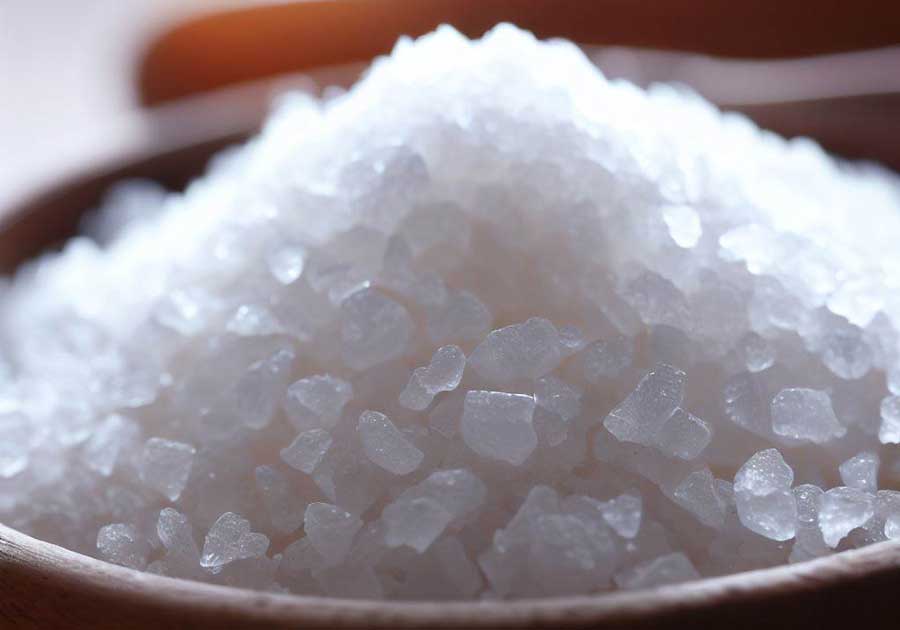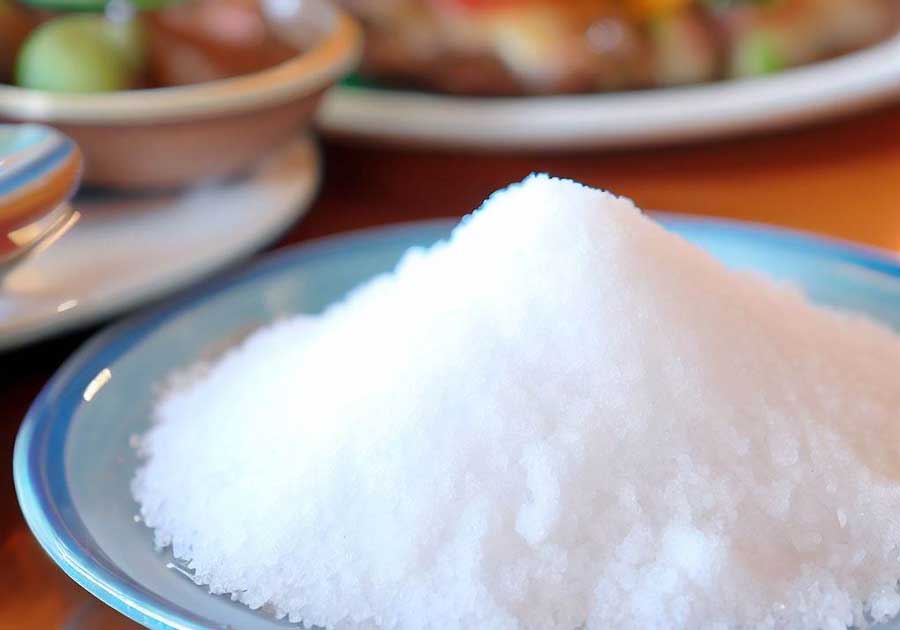Find Out The Truth – Does Thai Food Have MSG?
Monosodium Glutamate (MSG) is a common flavour enhancer found in many cuisines worldwide, including Thai cuisine. In recent years, there has been significant debate and concern surrounding the use of MSG in food. Let’s have a look into the presence of MSG in Thai cuisine, its role in enhancing flavours, the controversy surrounding its safety, and how individuals can make informed choices when enjoying Thai dishes.
What is MSG?
Before we get to the specifics of Thai food, first let’s look at what MSG actually is.
MSG was first isolated and identified from seaweed broth by a Japanese scientist named Kikunae Ikeda in the early 20th century. He discovered that glutamate, the active component in MSG, was responsible for the unique savoury taste of umami. Umami is considered one of the five basic tastes, alongside sweet, sour, salty, and bitter.
Despite some controversies and anecdotal reports of adverse reactions, numerous scientific studies and regulatory agencies, such as the U.S. Food and Drug Administration (FDA) and the World Health Organization (WHO), have determined that MSG is generally safe for consumption when used within established limits. MSG is considered safe for most people, although a small percentage of individuals may experience mild and transient symptoms like headaches or nausea when consuming large quantities of it, a condition sometimes referred to as “Chinese Restaurant Syndrome.” However, these reactions are not consistently supported by scientific evidence and are typically considered rare.
MSG is used in many cuisines around the world and is a key ingredient in some iconic dishes. But what about Thai food? Does Thai food have MSG?

The Role of MSG in Thai Cuisine
MSG, or Monosodium Glutamate, holds a unique and sometimes controversial place in Thai cuisine. This flavour enhancer, commonly known as “pong choo rot” in Thai, is a crystalline substance that adds depth and richness to the savoury umami flavour that defines many Thai dishes. Its use in Thai cooking is a delicate art, contributing to the overall balance of flavours and making each bite of Thai food a sensory delight.
Umami, often referred to as the fifth basic taste alongside sweet, sour, salty, and bitter, is a fundamental element of Thai cuisine. Thai chefs aim to create dishes that strike a harmonious balance between these tastes, with umami playing a crucial role. MSG is the tool that helps them achieve this delicate balance by intensifying and rounding out the umami taste, resulting in dishes that are both satisfying and deeply flavourful.
In Thai cuisine, MSG finds its way into a wide range of dishes, from aromatic soups to rich curries and vibrant stir-fries. It acts as a culinary amplifier, enhancing the inherent umami flavours present in the ingredients used. Let’s explore some notable examples of MSG’s role in specific Thai dishes:
While MSG plays a significant role in enhancing the umami experience in Thai cuisine, it’s essential to acknowledge the controversy and concerns surrounding its safety. Some individuals have reported experiencing symptoms like headaches, sweating, and nausea after consuming foods containing MSG. However, scientific research has not consistently supported these claims, and regulatory agencies worldwide generally consider MSG safe for consumption when used within established limits.
In Thai restaurants, MSG usage can vary. Some restaurants proudly declare that they do not use MSG, catering to those who may have concerns about it. Other restaurants incorporate it into their recipes, believing that it enhances the authenticity and depth of their dishes. When dining at a Thai restaurant, customers can inquire about the use of MSG if they have specific dietary preferences or sensitivities.
For those who enjoy preparing Thai dishes at home, the use of MSG is a matter of personal preference. Home cooks have the flexibility to experiment with different seasoning and natural umami sources to achieve the desired balance of flavours. Traditional Thai ingredients like fish sauce, tamarind, and fresh herbs and spices can be used to enhance the umami profile of dishes without relying heavily on MSG.
MSG in Thai Food? Yes, in Just About Everything
MSG’s role in Thai cuisine is to elevate and intensify the umami experience, contributing to the overall balance and depth of flavours that make Thai food so beloved. While its use has sparked controversy and concerns about safety, scientific research and regulatory authorities generally consider MSG safe for consumption within established limits. Thai chefs use MSG as a tool to perfect the intricate balance of sweet, sour, salty, and spicy flavours that define Thai cooking.
The presence of MSG in Thai cuisine, whether used sparingly in traditional recipes or omitted for dietary considerations, highlights the diverse and adaptable nature of this culinary tradition. Ultimately, Thai cuisine’s appeal extends far beyond the use of MSG; it is a celebration of vibrant ingredients, culinary traditions, and the artistry of Thai chefs that continues to captivate food enthusiasts worldwide.
If you are concerned about MSG or have experienced sensitivity to it, can make informed choices when dining at Thai restaurants by inquiring about its use. For those who enjoy cooking Thai dishes at home, experimenting with natural umami sources and fresh herbs and spices can help achieve the desired balance of flavours without relying heavily on MSG.
Thai Foods Most Likely to Contain MSG in Thailand
| Thai Dish | Likelihood of Containing MSG |
|---|---|
| Tom Yum Soup | Commonly Contains MSG |
| Green Curry (Kaeng Khiao Wan) | Commonly Contains MSG |
| Massaman Curry | May Contain MSG |
| Stir-Fried Dishes | May Contain MSG |
| Street Food | Often Contains MSG |
| Pad Thai | May Contain MSG |
| Red Curry (Kaeng Phet) | May Contain MSG |
| Pineapple Fried Rice | May Contain MSG |
| Larb (Spicy Thai Salad) | May Contain MSG |
| Som Tum (Green Papaya Salad) | May Contain MSG |
| Mango Sticky Rice | Typically Does Not Contain MSG |


